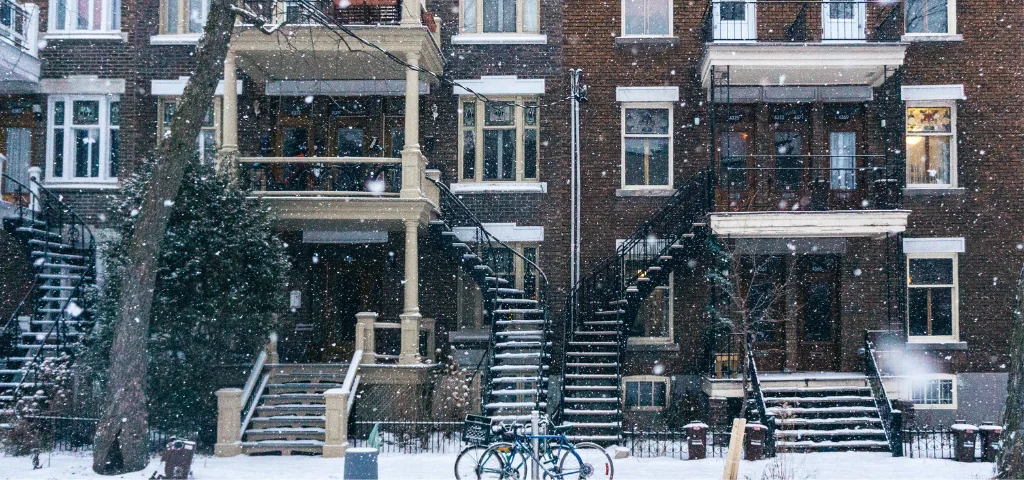Are you having issues with your landlord or tenant? Do you have questions about your rights as a tenant or landlord? The Tribunal administratif du logement (TAL) can help.
Formerly known as the “Régie du logement”, the TAL is a specialized court that handles most issues related to residential leases in Quebec.

|
This article in short
|
The TAL’s role
The TAL’s mission is to:
- settle conflicts between landlords and tenants,
- inform people about their rights and responsibilities related to renting,
- promote out-of-court settlements when possible, namely through its free conciliation service.
Although the TAL is more accessible than traditional civil courts, it still operates like a court and follows strict legal rules.
The types of cases the TAL handles
The TAL is the only court that can handle cases related to residential leases when the amount at play is under $100,000.
You can go to the TAL in various situations. For example, you could ask the TAL to order the following:
- require the other party comply with the lease, like by doing repairs or paying what they owe,
- stop harassment against a tenant or a landlord,
- evict a tenant who hasn’t paid their rent on time,
- reduce the rent or require a party to pay compensation, for example if the landlord refuses to fix a unit that’s in bad condition.
The TAL is also the only tribunal authorized to hear the following matters, no matter how much money is involved:
Application to repossess (take back) a rental unit
When the owner wants to take back the unit to live in it or to house a relative. For example, a landlord may want to repossess the unit so their daughter can move in.
Application to have rent fixed
When one party asks the TAL to set the new rent. For example, a tenant that thinks a rent increase is too high can refuse it. The landlord must then ask the TAL to determine an appropriate amount for the new rent.
Application for subdivision
When the owner wants to split one unit into several ones. For example, turning a 6 ½ into two 3 ½ units.
Application to change the destination of the unit
When the owner wants to use the unit for a non-residential purpose, such as turning it into a commercial office.
Application to enlarge the unit
When the landlord wants to significantly enlarge the unit, which means the tenant has to move out. For example, combining two units to create one large 7 ½ unit.
Applications related to low-rental housing
For example, a tenant in low-rental housing wants to contest the housing bureau’s decision to put an end to their lease.
The TAL can also make decisions about:
- demolishing a unit, if there’s no municipal by-law applying to it,
- selling or transferring a unit within a building complex,
- converting a building into divided co-ownership, such as condos,
- rent deposits: this is when a tenant pays their rent to the TAL instead of directly to the landlord.
Services offered by the TAL
The TAL’s main role is deciding on cases between tenants and landlords, but it also offers other important services.
Deciding on cases
When a tenant or landlord files an application with the TAL, the TAL calls both sides to a hearing. After listening to both parties, the TAL gives a written decision.
Informing tenants and landlords on their rights and responsibilities
The TAL helps tenants and landlords understand their rights and responsibilities related to residential housing. To do this, it offers:
- an information service that gives legal information and helps with writing and submitting applications (webpage available in French only),
- a website with useful resources, including a rent increase calculator (available in French only) updated every year,
- summaries of decisions made by TAL judges,
- housing statistics for Quebec.
|
Important! TAL staff can’t give you legal advice. They can only provide general information. |
Free conciliation service
The TAL offers a free conciliation service to help landlords and tenants resolve their conflict without having to go before a judge.
Sample forms and notices
The TAL offers several sample forms and notices. For example, you can find:
- a lease transfer notice,
- a notice of sublease,
- a notice of repossession of a unit, and a sample response to that notice.
Where to find the TAL’s offices
There are several TAL offices across Quebec. You don’t have to go to Montreal or Québec City to file an application or attend a hearing.
On the TAL’s website, you can find:
- the address of the office closest to you,
- contact info like phone number and email,
- the services offered at each location.
|
Need help? Visit the TAL’s website for more resources or to get help that fits your situation. |





